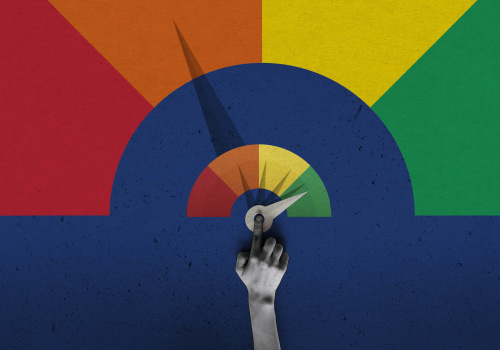If your credit score isn't as high as you'd like, don't worry. You can increase your score in as little as three months by doing things like paying off debt, refuting errors on your credit report, and avoiding using credit cards. It will improve your credit before you know it. The short answer is that it usually takes at least a year to recover from bad credit, assuming you do everything right.
But it all depends on your starting point, the length of your credit history, and the steps you take in the future. Rebuilding your credit doesn't happen overnight. It takes time to restore a good payment history, pay off any debts you may have, and let negative information erase your credit report. It can be useful to know how long negative information appears on credit reports. If your credit score is lower than you'd like, there may be quick ways to boost it.
Depending on what you hold down, you may be able to score up to 100 points relatively quickly. Is an increase of 100 points realistic? Rod Griffin, senior director of public education and promotion at the credit agency Experian, says yes. If you don't make a payment after 30 days or more, call the creditor right away. Pay as soon as possible and ask if the creditor will consider stopping reporting the late payment to the credit bureaus. Even if the creditor doesn't, it's worth getting up to date with the account as soon as possible.
Every month that an account is marked as delinquent hurts its score. Someone with a low score is better positioned to make a profit quickly than someone with a strong credit history. Paying bills on time and using less than the credit limit available on cards can improve your credit in just 30 days. Paying bills on time and paying your credit card balances are the most powerful steps you can take to raise your credit. Issuers report your payment behavior to credit bureaus every 30 days, so taking positive action can help you get credit quickly.
If you have a low score, you're better positioned to make a profit than someone with a good credit score. Depending on what's holding you down, you may be able to score up to 100 points through positive credit habits, such as paying on time or using less of available credit. Property and accident insurance services are offered through NerdWallet Insurance Services, Inc. OK9203 Property & Casualty Licenses. Paying bills on time and paying your credit card balances are the most powerful steps you can take.
An additional credit account in good standing can help enhance your credit, especially if it's a type of credit you don't yet have. Even if you have a fixed credit score at 750, it's possible to increase that score in a short period of time. If a family member or friend has a credit card account with a high credit limit and a good history of timely payments, request that they add you as an authorized user. You may see some improvement in just one or two months, but how long the entire reconstruction process takes will depend on your initial score and the score you want to reach. Understanding how credit scores are calculated can improve your score, typically between six months and three years. How long it will take you to increase your credit rating depends on why you need to increase your rating in the first place. If you want to calculate how a secured card could help you recover your credit or how adding a second card to your wallet could affect things, you can use WalletHub's free credit score simulator.
The FICO 8 model, which is the most used for credit decisions, continues to take into account the charges paid. At first, you should only have one secured credit card to recover your credit, although you may want to eventually consider having two. You can do several things to raise your credit rating, such as challenging false information, canceling collection accounts, and reducing the percentage of credit used. If you can manage payments, it's generally beneficial to open new credit card accounts and other debts.











